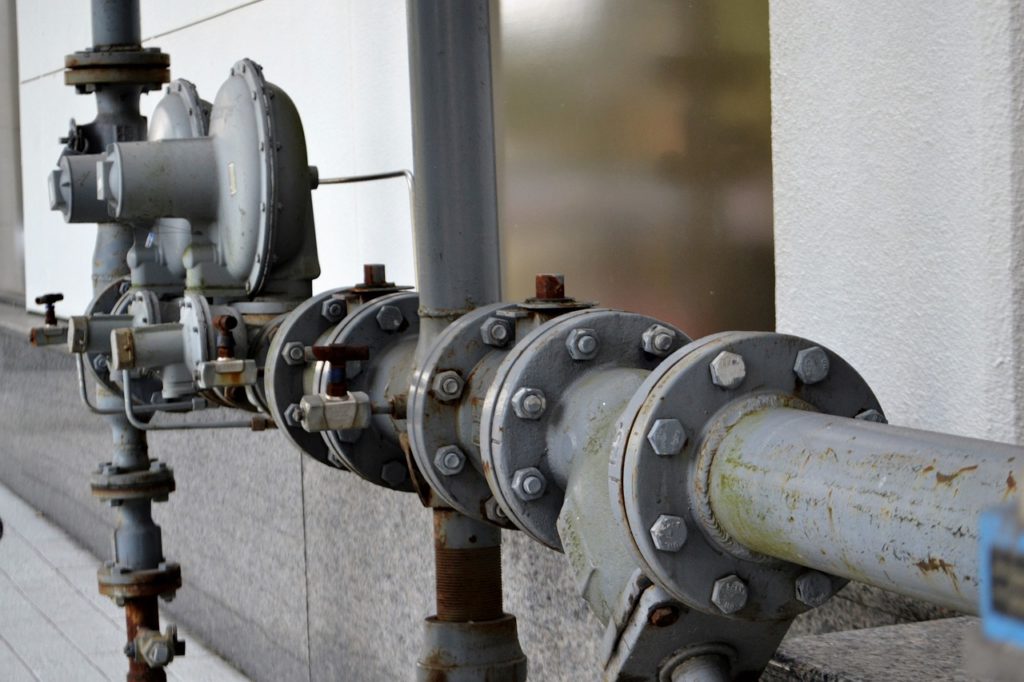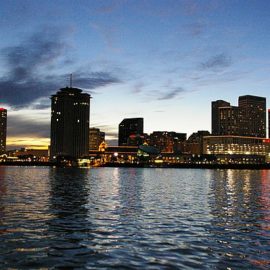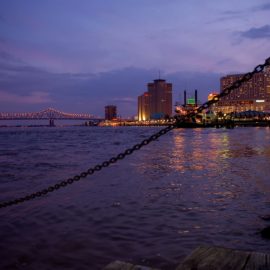
Not new looking like this but rusted with holes.
Repairs to a 60-inch sewer force main in New Orleans are expected to be completed by the end of next week, which would allow raw sewage to stop being pumped into the Mississippi River, Sewerage & Water Board Executive Director Ghassan Korban said Friday. Over the weekend, water board employees will begin welding sheets of steel onto the existing 60-year-old sewage pipe around sections that have been eroded away, once Boh Brothers employees complete the installation of sheet piling and shoring materials at the site to allow excavation to occur to 15 feet beneath the bottom of the pipe. The pipe is located at 2900 Peoples Ave. in the St. Roch neighborhood. The excavation is required because the break in the pipe is on its lower side, and that depth will allow workers to stand beneath it while welding the plates in place. The installation of 25-foot sheet piles to protect the excavation site has also been complicated by its location adjacent to Norfolk Southern Rail Road tracks. While the welding work is expected to be completed by mid-week, the Sewerage & Water Board has promised the federal Environmental Protection Agency that the repairs will be done by Friday. Korban said the repairs are expected to cost about $600,000.
nola.com
5 July was when it was first noted.
The failed pipe is just outside the water board’s Sewage Pump Station D, and workers at the station first discovered the break at 2:30 p.m. on July 5. An initial effort to repair the break that day was unsuccessful, and because of the size of the break, officials decided to reroute a portion of the sewage entering the pump station to an existing pipeline that leads to the river.
That existing 48-inch bypass pipeline runs along St. Ferdinand Street from the Gentilly station to the river, where it goes through a floodwall to enter the river. While the water board has reported to both the state Department of Environmental Quality and EPA that the initial amount of sewage being rerouted was expected to be about 1,000 cubic feet per second, officials said Friday that the actual amount being released into the river was about 150 cubic feet per second, where it is mixing with the river flow of about 260,000 feet per second, which is lower than normal this year. There are no reports of the released sewage causing problems downstream in the river. “Our water intake is so deep that we’re seeing no effects,” said St. Bernard Parish President Guy McInnis. A spokesperson for Plaquemines Parish said IFRAMARK, the company that operates the parish’s water supply system, has not seen any contamination in any of the system’s water intakes in the river.
Millions of gallons have been released.
In its initial written report to DEQ, water board officials said that between the time of the break discovery and 7 a.m. on July 7, about 2.3 million gallons of raw sewage entered the Florida Avenue and Peoples Avenue rainfall drainage canals nearby. Korban said vacuum trucks sucked that waste out of the canals and delivered it to the main East Bank Wastewater Treatment Plant for treatment and disposal. The stretch of pipe that failed was in a vertical bend of the pipe system and included a number of connections to other pipes, he said. That meant a replacement would require waiting for a customized pipe to be manufactured, so the temporary repairs were authorized. But he said the much longer segment of pipe that includes the repaired piece is scheduled to be replaced within the next 18 months. As part of that project, a separate bypass pipe will be installed that will deliver sewage to adjacent parts of the system leading to the treatment plant, and will not require disposal of sewage in the river.
User fees don’t pay for maintenance.
Korban said the pipe break is a symptom of a long-standing problem faced by the water board: not enough money produced by existing user fees to pay for routine maintenance of the city’s elderly sewer, water and drainage systems. While the water board is still spending money provided under Federal Emergency Management Agency grants for system upgrades in the aftermath of Hurricane Katrina nearly 20 years ago, the portions of the system not covered by those grants continue to age, he said, and their upkeep costs are more than the water board’s existing budget. Recent estimates by S&WB officials indicate the agency’s revenue could be short by more than $100 million a year for water and sewerage expenses during the next few years. One example of how that affects the agency’s daily operations is found in monthly reports made by the water board this year to the DEQ of 115 other sewage break bypasses and manhole overflows between January 1 and May 30. “We’re under a consent decree order to improve our system, which we have been doing for a couple of decades now, and we’re nearing the completion of that consent decree order by the end of 2025,” he said. “Having said that, you cannot stop investing in the system, and we have been advocating for additional revenue to continue meeting the projected needs and demands of our current infrastructure.”
Republicans are killing infrastructure money as the nation falls apart.



